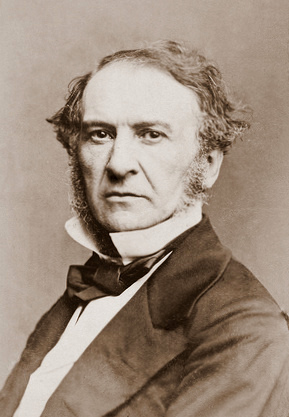|
1868 United Kingdom General Election In Ireland
The 1868 United Kingdom general election in Ireland resulted in the Liberals under Gladstone strengthening their control over Ireland, particularly the south. It was the first election following the Representation of the People (Ireland) Act 1868. A key focus of the Liberal campaign was on their proposal to disestablish the Church of Ireland. The Church of Ireland's official role, as the Protestant national church of a Catholic majority country, had long proved controversial. The Tithe War of the 1830s had largely resulted in the abolition of tithes, which had been levied on Ireland's population (both Protestants and Catholics) to fund the Church of Ireland. Disestablishment was popular both in Ireland, and also amongst non-conformists and the Irish diaspora in Britain, particularly in the Celtic Fringe. This policy would be enacted following the election by the Irish Church Act 1869. The election marked the high-water point of the Liberals in Ireland, and within 17 years they ... [...More Info...] [...Related Items...] OR: [Wikipedia] [Google] [Baidu] |
House Of Commons Of The United Kingdom
The House of Commons is the lower house of the Parliament of the United Kingdom. Like the upper house, the House of Lords, it meets in the Palace of Westminster in London, England. The House of Commons is an elected body consisting of 650 members known as members of Parliament (MPs). MPs are elected to represent constituencies by the first-past-the-post system and hold their seats until Parliament is dissolved. The House of Commons of England started to evolve in the 13th and 14th centuries. In 1707 it became the House of Commons of Great Britain after the political union with Scotland, and from 1800 it also became the House of Commons for Ireland after the political union of Great Britain and Ireland. In 1922, the body became the House of Commons of the United Kingdom of Great Britain and Northern Ireland after the independence of the Irish Free State. Under the Parliament Acts 1911 and 1949, the Lords' power to reject legislation was reduced to a delaying power. The g ... [...More Info...] [...Related Items...] OR: [Wikipedia] [Google] [Baidu] |
Tithe War
The Tithe War ( ga, Cogadh na nDeachúna) was a campaign of mainly nonviolent civil disobedience, punctuated by sporadic violent episodes, in Ireland between 1830 and 1836 in reaction to the enforcement of tithes on the Roman Catholic majority for the upkeep of the established state church, the Church of Ireland. Tithes were payable in cash or kind and payment was compulsory, irrespective of an individual's religious adherence. Background Tithe payment was an obligation on those working the land to pay ten per cent of the value of certain types of agricultural produce for the upkeep of the clergy and maintenance of the assets of the church. After the Reformation in Ireland of the 16th century, the assets of the church were allocated by King Henry VIII to the new established church. The majority of the population in Ireland who continued to adhere to Catholicism were then obliged to make tithe payments which were directed away from their own church to the reformed one. This incr ... [...More Info...] [...Related Items...] OR: [Wikipedia] [Google] [Baidu] |
November 1868 Events
November is the eleventh and penultimate month of the year in the Julian and Gregorian Calendars, the fourth and last of four months to have a length of 30 days and the fifth and last of five months to have a length of fewer than 31 days. November was the ninth month of the calendar of Romulus . November retained its name (from the Latin ''novem'' meaning "nine") when January and February were added to the Roman calendar. November is a month of late spring in the Southern Hemisphere and late autumn in the Northern Hemisphere. Therefore, November in the Southern Hemisphere is the seasonal equivalent of May in the Northern Hemisphere and vice versa. In Ancient Rome, Ludi Plebeii was held from November 4–17, Epulum Jovis was held on November 13 and Brumalia celebrations began on November 24. These dates do not correspond to the modern Gregorian calendar. November was referred to as Blōtmōnaþ by the Anglo-Saxons. Brumaire and Frimaire were the months on which November fel ... [...More Info...] [...Related Items...] OR: [Wikipedia] [Google] [Baidu] |



